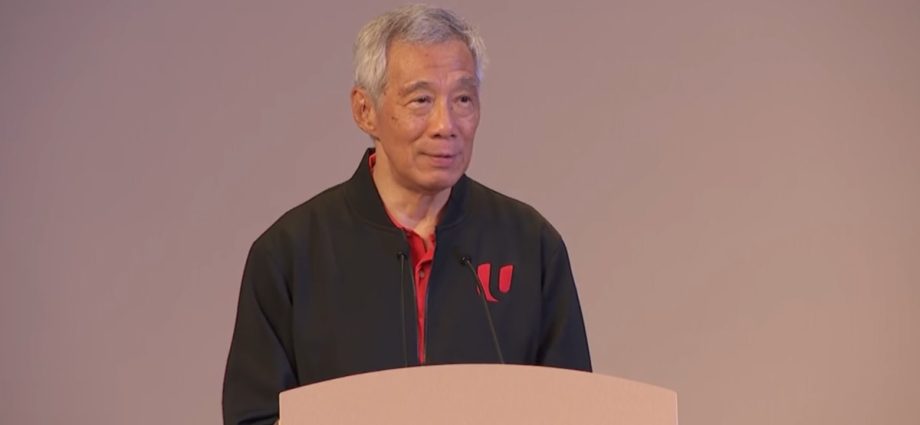
MEASURES TO EASE COST-OF-LIVING CONCERNS
While this strategy has moderated the cost of living, some households will still need extra help, said the Prime Minister.
These households received targeted assistance in the form of cash or vouchers, including GST vouchers, U-save rebates, CDC vouchers and public transport vouchers, he said.
“And we target it, so that those who need help get the most help,” said Mr Lee, noting that this can add up to S$9,000 of direct help this financial year depending on the household.
“This way is much better than subsidising electricity or water prices across the board, which some other countries do,” he added.
This is because with across-the-board subsidies, the households benefiting the most are the ones using the most water or electricity, which are not usually needy households, said Mr Lee.
“But of course in difficult years like this one, when growth is slow, prices are going up faster, when wages are not quite keeping up with prices, then we need to think what more we can do to help Singaporeans cope,” he continued.
“Can we delay price adjustments to a more favourable time? … Or should we just proceed with the fee increases, but carefully manage their overall impact on households?”
In a difficult year, the government has to “think extra hard” about increasing fees. If the increases are not essential, they can be delayed for a while longer, or the immediate increase can be moderated, said Mr Lee.
For example, the government has absorbed two-thirds of what the increase in public transport fares should be this year, which will cost S$300 million.
“But some price increases will not be avoidable or postponable. And if we just push them off, it doesn’t solve the problem because next year the shortfall will become bigger. Then what do we do?” said the Prime Minister.
“And in that case, sometimes after thinking about it, we have no choice but to proceed, but we will also definitely be more generous with the targeted support to households.”
With the additional U-Save rebates rolled out, the number of households with difficulties paying their utility bills has gone down, he noted.
CHANGING NATURE OF JOBS
To stay relevant, the Labour Movement will need to continuously reinvent itself, said the Prime Minister, citing challenges like regional conflicts, climate change and technological advances.
“There will also be new opportunities, while we experience new and social economic pressures,” he added.
With rapid developments in artificial intelligence and robotics, the nature of jobs will change significantly, affecting blue-collar, white-collar and professional jobs, said Mr Lee.
Overall, productivity should go up, and Singapore should enjoy higher growth, but the transformation will be so great that individual workers and livelihoods will be affected, he added.
In a changing world, some think that unions should play a smaller role, said Mr Lee, adding that many employers and governments in other countries do not encourage unions.
“But from the point of view of the individual worker, when you are displaced from a job and you’re on your own, it’s a very painful experience,” he said, adding that the PAP government rejects the view that unions should play a smaller role.
“Sooner or later, all the unhappy people will get together, mobilise others and push against the changes … and not in a productive way.”
The PAP government and NTUC must continue to work hand in hand to foster transformation and upgrading, broaden its representation and refresh its offerings, said Mr Lee.
Since Mr Lee Kuan Yew’s time, the PAP worked closely with the unions to understand workers’ needs, champion their interests and pursue policies that improved their lives, he added.
“On their part, the workers gave PAP a strong political base and popular support,” said the Prime Minister.
“That was how the PAP government won the people’s mandate in successive elections to implement policies and to build Singapore.”

